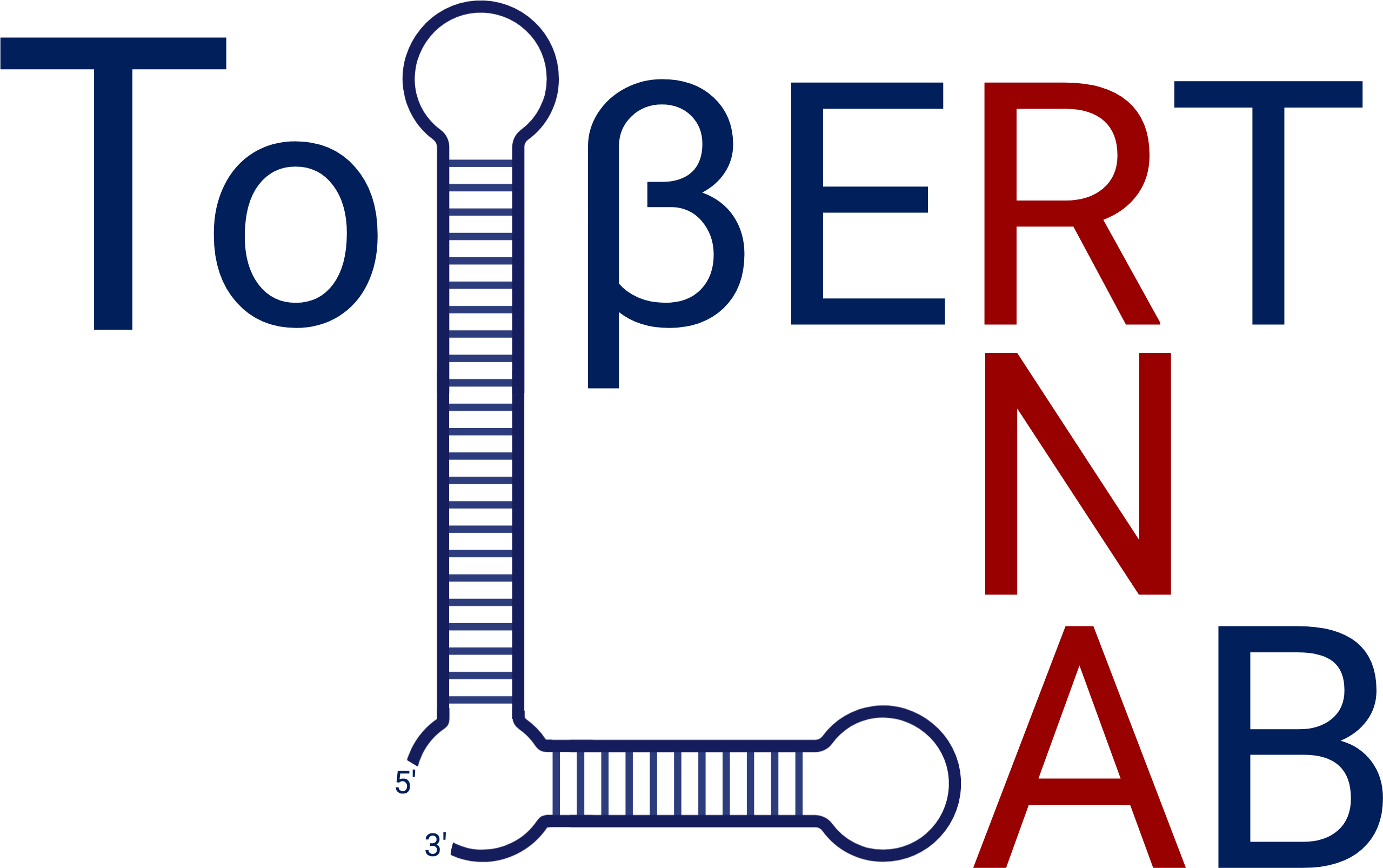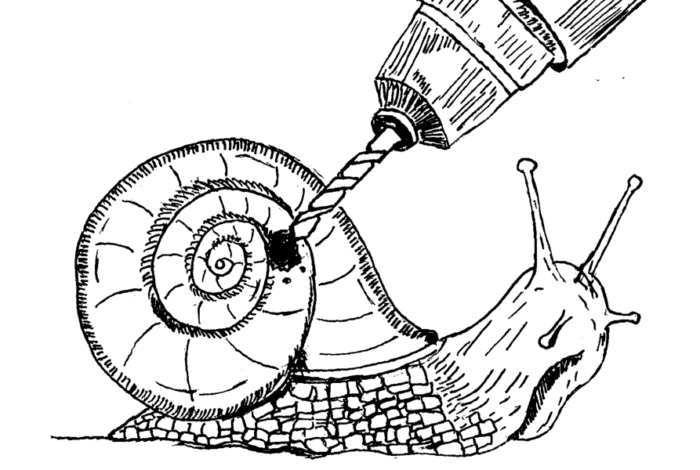Written by: Agata Jacewicz, Barrington Henry, Blanton Tolbert, James Hagerty, Jeff Levengood, Mary Donnelly, Srinivasa Penumutchu, Sudeshi Abedeera, William Ford, Yuchen He
This document is a collaborative agreement between all current members of the Tolbert Lab. The goal of this document is to articulate our vision, values, and expectations. We believe that these values are foundational to rigorous and ethical science.
TO LEVERAGE FOUNDATIONAL PRINCIPLES OF INTERMOLECULAR RNA INTERACTIONS FOR THE BENEFIT OF HUMANITY.
TO ADVANCE SCIENTIFIC DISCOVERY VIA CREATING A LAB CULTURE THAT IS DIVERSE, EQUITABLE, INCLUSIVE AND FOSTERS A SENSE OF BELONGING.
University, HHMI, and Lab’s personal values that drive this agreement
- As lab members we agree to adhere to the UPenn Code of Student Conduct, UPenn Principles of Responsible Conduct, and HHMI Policies.
- We graciously give and accept feedback from anyone else on the team.
- We welcome feedback on scientific projects regardless of the level of experience of the person. Also, with the assurance that it will not affect the work relationship.
- We are respectful in providing feedback or during criticism.
- We strive to promote a supportive and empathetic lab environment.
- We respond with empathy about situations we have not experienced and are willing to be understanding and provide support if needed.
- We are conscientious and respectful of other people’s time, effort, and expertise. We all bring value.
- We value other people’s time and effort.
- We are courteous and professional.
How we define professionalism: To act with Competence, Knowledge, Conscientiousness, Integrity, Respect, and Emotional Intelligence
- We own our mistakes and challenges so that we can grow and move forward. We work together to grow and move forward without punitive treatment.
- We make and honor a commitment to giving it our best effort, and minimize making excuses but instead focus on ways to improve
- “Before rushing to judgment about others, take a moment. Engage in conversation, seize the opportunity to comprehend their perspective. Understanding is key. – Vas”
All lab members expectations
- If we are tired, we rest; overwork is counterproductive and bad for you.
- If we are not feeling well, we will stay home to keep ourselves and others safe.
- If we cannot meet a commitment, communicate as soon as you are able to.
- We are honest and serious about our work and goals. If not, we are wasting everyone’s time.
- We understand that failure is a part of science and it can teach us how to move forward if we keep trying.
- We work hard and play hard.
- We leave our egos in front of the lab door. We are here to do science, and not to test who’s the best at it.
- Show up at work; it is hard to build a team and get to know each other if members work from home most of the time.
- We will be present in the lab four days a week minimum, with a flexible day to work from home and communicate when you will be working from home.
- We keep our workspace tidy and clean up after using common lab equipment/space and reagents.
- We will say “Hello” to people when you come in; it is nice to acknowledge each other’s presence.
- We communicate clearly, effectively, and kindly. This is crucial to reducing tension in the workplace.
- If we have an issue with a colleague’s actions, we will politely bring it to their attention. If the offender is not made aware of the problem, then it cannot always be resolved.
- If we make a mistake while using lab resources (e.g., contaminate common reagents, leave the freezer open for a prolonged time, turn someone’s electrophoresis off, etc.), we will come clean about it and directly inform the person/people impacted. This will likely affect someone’s work for months to come if not.
- If we encounter a problem with the infrastructure of the lab or common equipment, we will try to fix it or escalate it through the proper channels.
- If we have an official grievance to report, we will file it through the appropriate channels and reach out to the lab manager (James Hagerty) or PI (Blanton Tolbert) for support
- If we are burnt out, we seek support from each other..
- Burnout is not an individual failing, it is a structural issue and the way to solve it is to modify the structures in a way that people can function and excel in the lab
- To make these changes we need those affected to communicate in a way that does not require specific disclosures but allows for the appropriate changes to be made
- Seek out resources for general mental health services
Science functions as an apprenticeship and requires healthy mentor and mentee relationships to thrive. We believe these relationships can be maintained if the mentors and mentees follow certain values and expectations. All members of the Tolbert lab can participate and will participate and both mentor and mentee in different ways. We can all teach, lead, share and help others grow and in turn we are all open to learning and growing with the support of our lab mates.
Expectations of Mentors in the Tolbert Lab
- Clearly communicate their expectations.
- Meet their mentees where they are at.
- Support their mentees in developing and achieving their goals.
- Ask for help when they need it or if they are overwhelmed.
- Provide a safe and welcoming space for their mentees.
- Are patient and courteous with their mentees .
- Listen to and learn from their mentees; you are not the only smart-ass in the room.
- Read. Including papers and books outside your professional specialty and interest.
- Welcome and seek collaborations.
- Know how to delegate tasks.
Expectations of Mentees in the Tolbert Lab
- Are transparent and honest with their PI/Mentor.
- Respect the time and effort of other lab members.
- Also, try your best to finish the tasks assigned to you by the suggested deadline and be mindful about not slowing the progress of the group, especially as all the research projects are developed as team projects.
- Try to contribute to the common lab chores and housekeeping as much as possible, while trying to achieve progress in research.
- If you are unsure of what you are doing, stop and ask for advice. Do not explode the lab. Please.
Regularly update the mentors on progress, discuss challenges, and listen to feedback from other members.
Maintain a detailed and organized lab notebook or digital records for tracking the project’s progress and trouble-shooting
- Commit to a schedule. Communicate with your mentor if that schedule changes.
- Leadership is for everyone. Showing up, working hard, setting a good example, and helping others is everyone’s responsibility regardless of title and contributes to a stronger lab culture.
How we communicate science
- Speak to your audience and research your audience if possible.
- Be authentic and accurate.
- Tell a story that includes the context, the data, and your conclusions.
- Remember that anyone can be a scientist if you let them.
- Attend conferences and give short talks; this will help you communicate your science better.
- Talk to kids/youth/neighbors about your science; the simpler the better.
How we record science
- Keep a reproducible record of your work that can be shared with others.
- Alway backup your data, robust backup includes saving in multiple forms (ie cloud, lab computer, external hard drive) and keeping data in multiple locations (ie cloud backup and lab computer backup, cloud backup and external hard drive, lab computer and external hard drive stored in a separate location)
- All data that is presented should have unedited versions saved.
- Assume you won’t remember anything. Projects can have long breaks or parts that are returned to and no details are guaranteed to stick.
- Make sure that the new protocols that are developed/optimized are well-documented in a manner that other person can easily follow without even a prior experience
- Maintaining a properly dated and documented lab notebook
- Write protocols such that, if everyone in the lab disappeared tomorrow, that someone with a basic understanding of laboratory practices could carry out the protocol.
- Our type of lab has high turnover, owing to being composed primarily of graduate students and post-doctoral researchers. Organize and name all digital files clearly such that a successor can effectively navigate them.
How our values drive our science
- Always question your assumptions.
- Democracy allows for inclusion.
- Never assume there is only one “right way” to approach a problem.
- Be open to expertise from others even if they are not experts in your field.
- Everyone on our team is valuable and no one is above anyone else.
- Suffering is not required for passionate, rigorous, or impactful science.
- Science can be safer, more comfortable, and more impactful.
- Sharing your expertise with others in the lab, and growing as a team
- Helping to enhance each other’s efficiency/productivity in the lab, whenever possible, being grateful for their efforts and time, and willing to do the same for them.
- The outcome of your experiments should be reproducible.
- Be honest with yourself and others about your contribution and input to the project.
- Every judgment teeters on the brink of error. Claiming absolute knowledge is arrogant. Knowledge is an unending adventure.
- When we think we know something, that’s precisely when we should look further into it.
Whose knowledge and contributions are valuable
- Everyone’s contribution is valuable if they care to share.
- Anyone can contribute to our mission and values no matter their job title or membership in the lab.
What types of contributions do we want to acknowledge
- If you shared an idea, knowledge, or/and advised on experiment and data collection and analysis, provided critical pieces of information, you should be acknowledged.
Who participates in authorship
We agree to adhere to the International Committee of Medical Journal Editors (ICMJE) criteria for authorship. They provide four main criteria for authorship:
- Substantial contributions to the conception or design of the work; or the acquisition, analysis, or interpretation of data for the work; AND
- Drafting the work or reviewing it critically for important intellectual content; AND
- Final approval of the version to be published; AND
- Agreement to be accountable for all aspects of the work in ensuring that questions related to the accuracy or integrity of any part of the work are appropriately investigated and resolved.
Any member of the Tolbert lab who has participated in the bolded and underlined first criteria should be given the opportunity to participate in the remaining criteria.
We focus on team projects and goals because:
- Team projects increase productivity.
- Team projects can increase investment in other’s work.
- Team projects allow for greater chances for rest for all lab members.
- Diverse methods and approaches can increase the impact of our work.
- Dividing and conquering is an effective way to approach a multi-faceted project. With that in mind, the division of work should be clear.


